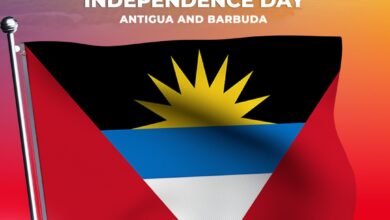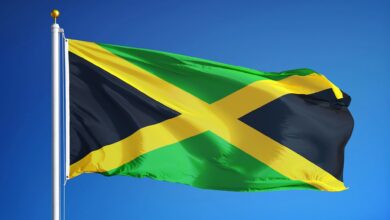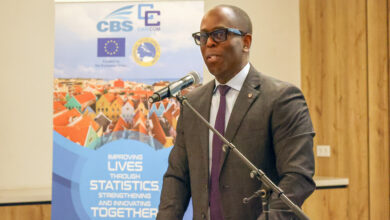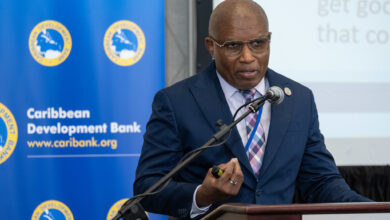(CARICOM Secretariat, Turkeyen, Greater Georgetown, Guyana) As the Region continues to take steps to respond to the economic challenges confronting it, Caribbean Community (CARICOM) Heads of Government are placing increased emphasis on the private sector as the engine of sustainable growth.
Heads of Government, on the second day of their 1-4 July meeting in Antigua and Barbuda, will engage captains of industry and commerce on implementing the Community’s growth agenda. The decision to meet with the private sector at that level was made at the Twenty-Fifth Inter-Sessional Meeting of the Conference of Heads of Government, held in St Vincent and the Grenadines in March 2014.
The centre-piece of the March deliberations was the economic situation facing Member States and ascertaining appropriate ways to get back on track following the global recession of 2008-10 and other exogenous challenges. Those discussions were held in the context of the Commission on the Economy which was established in 2013, following the Twenty-Fourth Meeting of the Bureau of the Conference of Heads held in Trinidad and Tobago.
The Commission has as its overarching goal, the recommendation of short to medium-term actions that would restore growth in Member States’ economies. Since it was established, the Commission has begun the analysis of priority issues identified by the Bureau of Heads. It has taken on board the decisions emanating from the Twenty-Fifth Inter-Sessional Meeting and has prepared a Work-Plan to advance initiatives agreed by the Heads of Government in March. The Commission is also expected to serve as coordinating mechanism to carry forward the output from ongoing regional initiatives directed at driving growth in Member States. These initiatives include Community projects such as the: Organisation of Eastern Caribbean States (OECS) Growth and Development Strategy; Draft Strategic Plan for Regional Development (SPRD) and Aid for Trade Strategy; the Caribbean Convergence Model, proposed by the Honourable Winston Dookeran, Minister of Foreign Affairs, Trinidad and Tobago; the World Bank-led Caribbean Growth Forum; Inter-American Development Bank-led Compete Caribbean Initiative; and the International Monetary Fund-led Caribbean Forum.
Time is ripe
Minister in the Office of the Prime Minister of Barbados, Senator the Hon. Darcy Boyce, head of the Commission, stressed that the time was ripe for a meeting with the Region’s captains of industry as it is they who make decisions on investments. It was time, he said, to ascertain, from them, their thoughts on how a better environment could be created for them to invest.
Areas that are likely to form the core of the high level consultations with the private sector include: the partnership between government and the private sector in driving growth and, in particular, creating the enabling environment for doing business in Member States; lessons from business success stories; and the pursuit of public private partnerships to ensure the production of critical economic services to improve the competitiveness of CARICOM firms.
In the run-up to the Heads of Government Meeting, a series of meetings between the regional business sector and Community Organs and offices were conducted.
In keeping with a decision made by Trade Ministers, the Council for Trade and Economic Development (COTED) met representatives of the regional private sector in May. That engagement was aimed at establishing a formal structure within which the private sector and the trade policymakers could interact.
The wide-ranging discourse between COTED and representative bodies of the private sector covered integration at work through the private sector; the establishment of a conducive environment for business, trade and growth of the private sector, and by extension the development of the Community. Public-private partnerships were also discussed. Focus was placed on key issues such as transportation for people, goods and services to move throughout the Region; ease of doing business in the Region, Information and Communication Technologies (ICTs) to improve efficiencies and competencies, and the effective utilization of the CARICOM Single Market and Economy (CSME) as a single space. The development of the CSME, a flagship programme of the Community, is intimately linked to the work of the Commission on the Economy. The pursuit of the CSME, Heads of Government acknowledged, would be illusive if the Commission’s focus of getting the economies back on track was not undertaken.
Regional engagement with the business community, ahead of the Heads of Government Meeting, continued with consultations that were aimed at shaping a policy for regional micro, small and medium-sized enterprises (MSMEs). The consultations between the CARICOM Secretariat and representatives of the private sector of Member States began in Guyana and continued, via video-conferencing, with Grenada and Suriname and in at least four other Member States. The consultations are being conducted to fulfill the urgent need for a legislative and policy framework in which to nurture MSMEs. The MSME sector is considered a critical pillar of the economic development of CARICOM, as it contributes considerably to the GDP of some Member States and often employs more people than large businesses across the Region.
It is anticipated that a draft policy will be completed by September and presented to CARICOM Member States for review. A final draft, which will be presented to the Council for Trade and Economic Development (COTED), is expected to be completed by October month-end.





